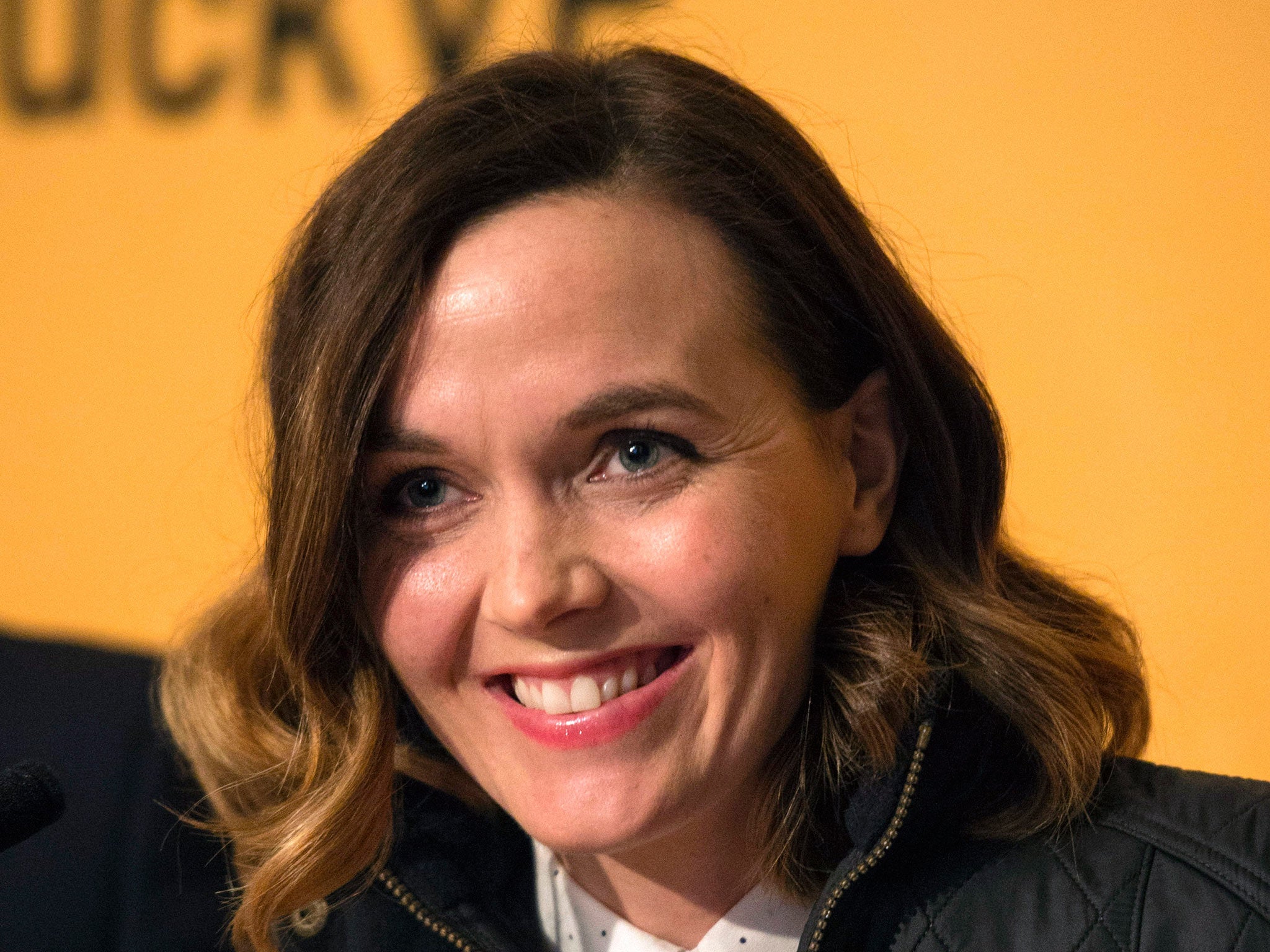Cycling champion Victoria Pendleton reveals she planned to take her own life: ‘I don’t want to see tomorrow’
‘I said to my mum: Please would you forgive me?’

Your support helps us to tell the story
From reproductive rights to climate change to Big Tech, The Independent is on the ground when the story is developing. Whether it's investigating the financials of Elon Musk's pro-Trump PAC or producing our latest documentary, 'The A Word', which shines a light on the American women fighting for reproductive rights, we know how important it is to parse out the facts from the messaging.
At such a critical moment in US history, we need reporters on the ground. Your donation allows us to keep sending journalists to speak to both sides of the story.
The Independent is trusted by Americans across the entire political spectrum. And unlike many other quality news outlets, we choose not to lock Americans out of our reporting and analysis with paywalls. We believe quality journalism should be available to everyone, paid for by those who can afford it.
Your support makes all the difference.Victoria Pendleton has opened up about her depression and revealed she considered taking her own life at her lowest points last summer.
The Olympic cycling gold medallist said she “fantasised” about killing herself on a daily basis, and had accumulated more than enough drugs to do so.
“I had it there, in front of me, and I knew how much it would take,” she said. “And how long I would have to be left for it definitely to work. It wasn’t even like I was really upset about it. I just felt numb.”
The 38-year-old has spoken about her mental health in the past, revealing she suffered with depression and self-harming, but in an interview with The Daily Telegraph this week, she disclosed the extent of her struggle, saying: “This was on another level.”
She says could not be left alone and was taking so much medication she was “rattling”. She even asked her mother for forgiveness for what she might do.
“I said to my mum: ‘Please would you forgive me?’ Obviously, it was very upsetting for her to hear that. But I really wanted my family to be able to forgive me. Because... I wouldn’t do it to hurt them on purpose,” she said.
Pendleton was diagnosed with depression last summer, after her attempt to climb Everest for a CNN documentary series was thwarted by hypoxia, an oxygen deficiency due to high altitude. Doctors suggested that the condition may have caused her depression, but she believes it was an accumulation of factors.
“I went from this full-on environment; avalanches breaking above my head, jumping across crevasses where you might die if you fell in… to coming back here, to a property I was potentially selling because I needed to move on with my life,” she said.
Pendleton had recently divorced from her husband, sport scientist Scott Gardner, before the excursion: “I didn’t really have security in where I was living, what I was doing next, the whole divorce, how I was feeling about that. It just overwhelmed me,” she continued.
She recalled one particular morning where it all came to a head: “I was so low. So helpless. And I just thought: ‘I don’t want to see tomorrow’.”
She rang Steve Peters, a psychiatrist at British Cycling. “I’m so grateful that he picked up. Because I don’t think I would be here if he hadn’t,” she said.
It was recommended that she go to hospital, but she decided instead to move in with her mother in Hertfordshire, where she stayed for two months. But it was a trip to Costa Rica that really helped her.
She said: “It was against the recommendation of my family and almost everyone else. They were like, ‘You’re going to travel by yourself. Be on your own. If you feel bad who is going to be there for you?’ But I just really wanted to do it. To try to find my own way through it. I came back from Costa Rica feeling 50 per cent better.”
Pendleton has since begun working with The Wave Project, a charity which uses surfing as a form of therapy.
“There is something very healing about being on, or in the ocean,” she said. “The way I felt when I came back [from Costa Rica] was like: ‘This is way better than any of the drugs I was prescribed’.”
Much to the confusion of some family members, she has agreed to go on the upcoming series of Channel 4’s SAS: Who Dares Wins, in which ex-Special Forces soldiers recreate the SAS’s secret selection process and contestants are faced with gruelling physical conditions. Pendleton explained that if she had said no, it would be like “admitting defeat”.
Representing Great Britain and England as a cyclist, Pendleton has won nine world titles including a record six in the individual sprint competition. She was appointed an MBE in 2010 and CBE in the 2013 new year honours list for services to cycling.
Pendleton retired in 2012 after winning gold in the keirin and silver in the sprint at the London Olympics. She is considered one of the country’s most successful female athletes.
If you have been affected by the issues raised in this article, you can contact the following organisations for support:
Join our commenting forum
Join thought-provoking conversations, follow other Independent readers and see their replies
Comments